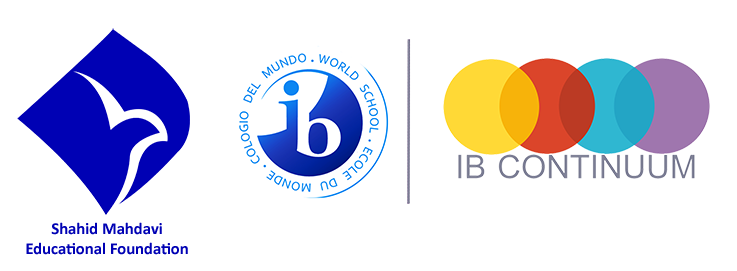What Is an IB Education?
Imagine a worldwide community of schools, educators and students with a shared vision and mission to empower young people with the skills, values and knowledge to create a better and more peaceful world. This is the International Baccalaureate (IB).
In 1968 the first programme offered by the IB, the Diploma Programme, was established. It sought to provide a challenging yet balanced education that would facilitate geographic and cultural mobility by providing an internationally recognized university entrance qualification that would also serve the deeper purpose of promoting intercultural understanding and respect.
With the introduction of the Middle Years Programme in 1994 and the Primary Years Programme in 1997, the IB identified a continuum of international education for students aged 3 to 19. The introduction of the IB Career-related Programme in 2012 enriched this continuum by providing a choice of international education pathways for 16 to 19 year old students.
Each of the IB programmes reflects a central desire to provide an education that enables students to make sense of the complexities of the world around them, as well as equipping them with the skills and dispositions needed for taking responsible action for the future. They provide an education that crosses disciplinary, cultural, national and geographical boundaries, and that champions critical engagement, stimulating ideas and effective relationships.
These aspirations are summed up in IB ambitious mission:
The International Baccalaureate aims to develop inquiring, knowledgeable and caring young people who help to create a better and more peaceful world through intercultural understanding and respect. To this end the organization works with schools, governments and international organizations to develop challenging programmes of international education and rigorous assessment. These programmes encourage students across the world to become active, compassionate and lifelong learners who understand that other people, with their differences, can also be right.
Each of the four IB programmes provides a detailed and developmentally appropriate curriculum or curriculum framework that is broad, balanced, conceptual and connected. IB programmes offer students access to a broad and balanced range of academic studies and learning experiences. They promote conceptual learning, focusing on powerful organizing ideas that are relevant across subject areas, and that help to integrate learning and add coherence to the curriculum.
The programmes emphasize the importance of making connections, exploring the relationships between academic disciplines, and learning about the world in ways that reach beyond the scope of individual subjects. They also focus on offering students authentic opportunities to connect their learning to the world around them. The four programmes are all underpinned by a shared focus on international-mindedness and developing the attributes of the IB learner profile.
All four IB programmes also require the completion of a culminating project (the Primary Years Programme exhibition, Middle Years Programme personal project or community project, Diploma Programme extended essay and Career-related Programme reflective project). These projects provide an opportunity for students to showcase their knowledge, understanding and skills.
Meaningful assessment supports curricular goals. In IB programmes assessment is therefore ongoing, varied and integral to the curriculum. IB schools use a range of strategies and tools to assess student learning. Emphasis is placed on the importance of analysing assessment data to inform teaching and learning, and on recognizing that students benefit by learning how to assess their own work and the work of others.
The Middle Years Programme, Diploma Programme and Career-related Programme also offer a range of
IB-validated assessments. These assessments balance validity and reliability, offering assessment tasks that, for example, require students to demonstrate higher order thinking rather than simple factual recall. These rigorous assessments help to maintain the IB’s hard earned reputation for high standards and challenging programmes.
![]() copyright
copyright
IB education
What is an IB education?
Published November 2019
Published on behalf of the International Baccalaureate Organization, a not-for-profit educational foundation of 15 Route des Morillons, 1218 Le Grand-Saconnex, Geneva, Switzerland by the
International Baccalaureate Organization (UK) Ltd
Peterson House, Malthouse Avenue, Cardiff Gate
Cardiff, Wales CF23 8GL
United Kingdom
Website: ibo.org ©
International Baccalaureate Organization 2019

